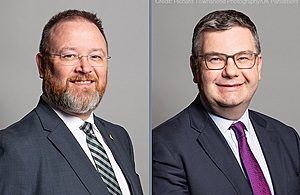The rules covering new measures to be imposed at the UK border from next week to protect against coronavirus will be published on 3 June 2020.
The self-isolation measures being introduced from Monday are designed to prevent new cases being brought in from abroad and to prevent a second wave of the virus.
Key measures being introduced include:
- All arrivals – bar a short list of exemptions – will be required to complete an online locator form to supply contact details, travel details and the address of where they will self-isolate for 14 days. Where international travellers are unable to safely self-isolate in their own accommodation the Government will support them finding appropriate accommodation at their own expense.
- Passengers arriving in the UK will be required to self-isolate for 14 days and could be contacted regularly throughout this period to ensure compliance. Public Health England will contact people at random to ensure they understand the requirements and are self-isolating. Removal from the country would be considered as a last resort for foreign nationals who refuse to comply with these public health measures.
- Anyone failing to comply with the mandatory conditions may face enforcement action. A breach of self-isolation would be punishable with a £1,000 fixed penalty notice in England or potential prosecution and unlimited fine.
- The level of fine could increase if the risk of infection from abroad increases. The Devolved Administrations will set out their own enforcement approaches.
- Border Force will undertake checks at the border and may refuse entry to any non-resident foreign nationals who refuses to comply with these regulations and isn’t resident in the UK. Failure to complete the form is also punishable by a £100 fixed penalty notice.
The rules do not apply those travelling from within the CTA (Ireland, the Isle of Man and the Channel Islands) – unless they have arrived in the CTA from overseas within the last 14 days, in which case they will have to provide locator details and self-isolate on arrival here. This will help make sure that those who could have come into contact with the virus overseas cannot bypass the self-isolation measures.
Those who have arrived in the CTA longer than 14 days ago will not have to provide locator details or self-isolate if they travel to the UK.
Home Secretary Priti Patel said:
Protecting the public’s health and avoiding a second peak that overwhelms the NHS will always be our top priority.
As we get the virus under control here, we must manage the risk of cases being imported from abroad. We owe it to the thousands who’ve lost their lives not to throw away our progress.
These measures are informed by science, backed by the public and will keep us all safe.
The new measures will be in place across the United Kingdom from 8 June, although enforcement measures will be set individually by the Devolved Administrations. The measures will be subject to review, to ensure they are in line with the latest scientific evidence and remain effective and necessary. The first review will take place by 29 June.
We will take a number of factors into account within the reviews to satisfy that, in line with scientific advice, the risk of imported cases is suitably low. The factors will include:
- The rate of infection and transmission internationally and the credibility of the reporting.
- The measures that international partners have put in place.
- Levels of imported cases in other countries where there are more relaxed border measures.
- And the degree to which antibody and other testing methodologies prove effective in minimising the health risk.
We will also continue to take account of the impact on the economy and industry.
Secretary of State for Transport Grant Shapps said:
To get the country and our economy back up and running, we must do everything to avoid a second wave of the virus, because if we get this wrong we will all suffer, and that’s why introducing these measures now is so important.
These measures will be reviewed every few weeks, and we are working with the transport industry to see how we can introduce agreements with other countries when safe to do so, so we can go abroad and tourists can come here.
As the Home Secretary confirmed at her recent press conference, the Government continues to look at other options to increase travel when it is deemed safe to do so. These include arrangements, known as “air bridges” or international travel corridors, which would remove self-isolation measures and safely open up routes to and from countries with low transmission rates.
Agreement would need to be made with individual countries before these measures take effect and the UK would seek assurances that any safe corridors met the needs of both countries.

